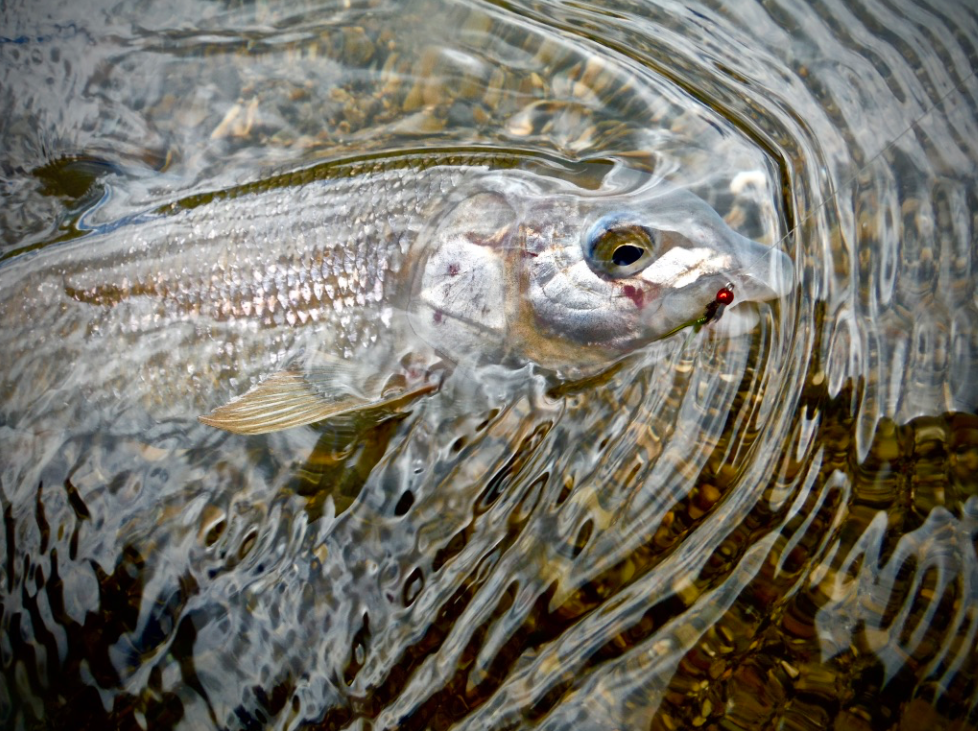The underappreciated mountain whitefish. Photo by Chris Hunt.
By Eric Booton
With a trip to Montana on the books for a wedding, I immediately began penciling out how I could optimize my time with the groom, my family and seek out new finned friends in some remarkable rivers with my wife.
The famed waters of Montana’s Yellowstone River, the longest un-dammed river in the Lower 48, come with expectations from anglers. For me those hopes and dreams looked golden, red cutted, and primarily on the topwater. My assumptions were validated when our guide tied a fat, foam grasshopper to our rods with a choice nymph below to comb the holes and riffles for the fish too timid to feed on the surface.
The waters I fish back home are limited to single hook only and I am elated to fish a tandem rig every opportunity I get. Double the success, double the grins, and as my wife will likely point out, twice the birds’ nests.
With each cast I track my drift intently, waiting for the hopper to dunk from a tug on the nymph, or ideally, get engulfed in the waterworks of a topwater attack from a colorful rainbow trout, beefy brown trout, or better yet, a native Yellowstone cutthroat trout.
Though we were on the very front end of the hopper hatch, our large terrestrial patterns saw their share of action and fulfilled my Montana expectations, while our selected nymphs proved a hot commodity for one of the Yellowstone River’s less sought-after species. What I learned from three days on the Yellowstone is that the “dropper” in my dynamic “hopper-dropper” combo, is one thing – a literal whitefish magnet.
I catch whitefish every year in Alaska, but I landed more whitefish in 24 hours of fishing in Montana than I have in six years of fishing up north. Whitefish, I get it. You love nymphs and will eat most any subsurface fly. Coming from the North, you are reminiscent of the Arctic grayling I routinely catch while casting for rainbow trout, but lack the iconic sail fin and electric appeal.
Whitefish, you are plentiful and often shunned, but I applaud you for keeping me on my toes and the action steady. May we as anglers never fail to recognize that you are one of two fish species native to the Yellowstone River, holding strong against the planted, predacious brown and rainbow trout, sticking true to your roots and thriving in your native range.
Though regarded as little more than by-catch, Prosopium williamsoni remains a species to be respected by anglers, and I for one will never forget that among your fellow and more prized river inhabitants, the Yellowstone Grand Slam would not be complete without you.
Eric Booton is the sportsmen’s outreach coordinator for TU’s Alaska Program. He lives and works in Anchorage.



